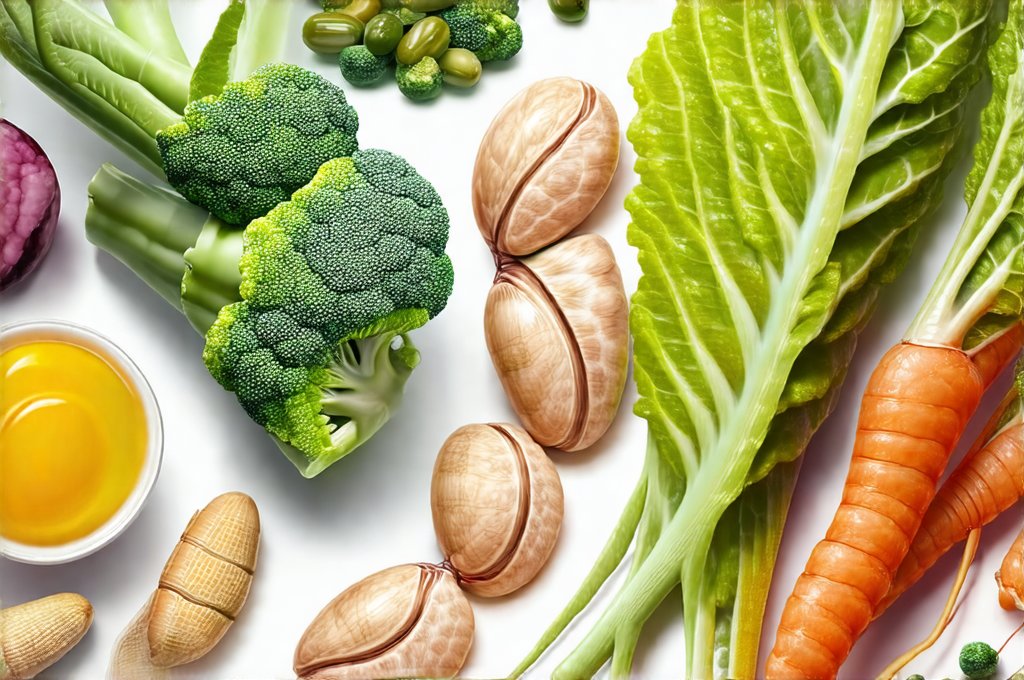The kidneys are remarkable organs, tirelessly working to filter waste products from our blood, maintain fluid balance, and regulate vital electrolytes. Often underestimated in mainstream health conversations, their efficient operation is paramount to overall well-being. A growing body of research highlights the significant impact diet plays on kidney health – not just preventing damage, but actively promoting optimal function. Many people associate dietary changes with restrictions when it comes to kidney concerns, focusing heavily on what to avoid. However, a proactive approach emphasizing nutrient-rich foods can be far more beneficial, providing building blocks for resilient and effectively functioning kidneys.
This article delves into the power of vitamin-rich diets specifically designed to support kidney efficiency. It’s about harnessing the natural protective qualities of food, offering a holistic strategy beyond simply managing existing conditions. We’ll explore which vitamins are most crucial, how they benefit the kidneys, and practical dietary strategies for incorporating them into your daily life. Understanding this connection empowers individuals to take control of their health proactively, fostering long-term kidney wellness through thoughtful nutritional choices – not deprivation, but nourishment.
The Role of Key Vitamins in Kidney Health
The kidneys are complex organs with high metabolic demands. They rely on a steady supply of vitamins and minerals to function optimally. Several vitamins play particularly important roles in maintaining their health and efficiency. Vitamin C, a powerful antioxidant, helps protect kidney cells from damage caused by free radicals, which are unstable molecules that can contribute to inflammation and disease. Similarly, B vitamins – including folate (B9) and B6 – are essential for various metabolic processes within the kidneys, aiding in waste removal and overall cellular function. Vitamin D is increasingly recognized as critical not only for bone health but also for kidney function, playing a role in regulating calcium absorption and reducing inflammation.
Beyond these specific vitamins, the broader spectrum of micronutrients found in whole foods contributes to overall kidney resilience. For example, vitamin A supports the structure and function of kidney cells, while vitamin E protects against oxidative stress. It’s important to remember that vitamins don’t work in isolation; they interact with each other and require a balanced diet for optimal absorption and utilization. Focusing on food sources rather than solely relying on supplements is generally preferred, as whole foods provide a complex matrix of nutrients that enhance bioavailability and synergistic effects.
A deficiency in any of these essential vitamins can impair kidney function and potentially increase the risk of kidney disease. Conversely, adequate intake supports healthy kidneys and may even offer protection against damage. This highlights the importance of prioritizing a vitamin-rich diet as a cornerstone of preventative kidney care. Consider incorporating morning habits into your routine to further support kidney health.
Dietary Strategies for Kidney-Supportive Nutrition
Implementing a kidney-supportive diet doesn’t require drastic changes or restrictive measures. Instead, it’s about making informed food choices that prioritize nutrient density and minimize potentially harmful substances. A foundation of fresh fruits and vegetables is paramount, as they are naturally rich in vitamins, minerals, and antioxidants. Berries, citrus fruits, leafy greens, and bell peppers are excellent sources of vitamin C, while legumes, whole grains, and dark green vegetables provide B vitamins. Fatty fish, fortified dairy products, and mushrooms offer valuable vitamin D.
Hydration is another critical component. Adequate water intake helps the kidneys flush out waste products efficiently and prevents the formation of kidney stones. Aim for at least eight glasses of water per day, adjusting based on activity level and climate. Limiting processed foods, excessive sodium, and sugary drinks is also essential, as these can put a strain on kidney function. Instead, focus on whole, unprocessed foods prepared with minimal additives.
Here are some practical tips to incorporate kidney-supportive nutrition into your daily routine:
* Start the day with a vitamin C-rich breakfast: Consider berries with yogurt or orange juice with whole-wheat toast.
* Include leafy greens in every meal: Add spinach to salads, kale to smoothies, or collard greens as a side dish.
* Choose lean protein sources: Fish, poultry, and legumes are excellent options that provide essential amino acids without excessive phosphorus.
* Snack on vitamin-rich foods: Keep fruits, vegetables, and nuts readily available for healthy snacking.
* Read food labels carefully: Pay attention to sodium content and avoid processed foods with high levels of additives.
Optimizing Vitamin D Intake
Vitamin D deficiency is widespread, even in sunny climates, and has been linked to an increased risk of kidney disease progression. The kidneys play a role in activating vitamin D, creating a feedback loop where healthy kidneys support vitamin D activation, and adequate vitamin D supports kidney health. Sunlight exposure remains the primary source of vitamin D, but many factors – including latitude, skin pigmentation, and time of year – can affect its effectiveness.
Dietary sources include fatty fish (salmon, tuna), egg yolks, and fortified foods like milk and cereal. However, obtaining sufficient vitamin D solely through diet and sunlight can be challenging for some individuals. In such cases, supplementation may be considered under the guidance of a healthcare professional. Regular blood tests to monitor vitamin D levels are essential to determine appropriate dosage and ensure optimal intake. It is vital to avoid excessive supplementation as this could lead to hypercalcemia (high calcium levels), which can harm the kidneys. Taking fresh air micro-breaks can also support overall health and vitamin D absorption.
The Power of Antioxidants
Kidneys are particularly vulnerable to oxidative stress, caused by an imbalance between free radicals and antioxidants in the body. This oxidative stress can damage kidney cells and contribute to inflammation, ultimately impairing their function. Vitamins C and E are potent antioxidants that help neutralize free radicals and protect against cellular damage. Beyond vitamins, many plant-based foods contain powerful antioxidant compounds called polyphenols, found abundantly in berries, grapes, dark chocolate, and green tea.
Incorporating a variety of colorful fruits and vegetables into your diet is an excellent way to boost your antioxidant intake. Consider adding blueberries to your breakfast cereal, snacking on strawberries throughout the day, or enjoying a cup of green tea with meals. A diet rich in antioxidants can help reduce inflammation, protect kidney cells from damage, and promote overall kidney health. Remember that antioxidants work synergistically with other nutrients, highlighting the importance of a balanced dietary approach. Herbs can also play a role in boosting antioxidant levels.
Hydration & Electrolyte Balance
While often overlooked, adequate hydration is absolutely fundamental to kidney efficiency. Water helps flush out toxins and waste products, preventing their buildup within the kidneys. The amount of water needed varies depending on individual factors like activity level, climate, and overall health, but aiming for at least eight glasses per day is a good starting point. Pay attention to your body’s signals – thirst indicates dehydration.
Electrolytes – sodium, potassium, calcium, and magnesium – are also crucial for kidney function. These minerals regulate fluid balance, nerve impulses, and muscle contractions. However, imbalances can put a strain on the kidneys. While excessive sodium intake should be limited, completely restricting electrolytes is not advisable. A balanced diet that provides adequate amounts of these essential minerals supports optimal kidney function. Individuals with existing kidney conditions may need to adjust their electrolyte intake based on medical advice – always consult a healthcare professional for personalized recommendations. Consider incorporating midday walking rituals into your routine to promote overall health and kidney function.
It’s important to reiterate that this information is intended for general knowledge and informational purposes only, and does not constitute medical advice. Always consult with a qualified healthcare professional for any health concerns or before making any decisions related to your health or treatment.





















